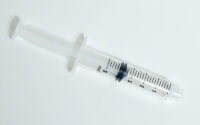Fatigue and EDS

Those who have any form of Ehlers-Danlos Syndrome (EDS) like me (with hEDS) or the new diagnosis of Hypermobility Spectrum Disorder (since March 2017) can tell you there is definitely some fatigue involved from the strain on weak muscles, torn tendons and ligaments and all forms of our connective tissue.
Those of us with the very commonly comorbid Mast Cell Activation Disorders (whether Mastocytosis, or the less well known but more common diagnosis of MCAS and the new since 2016 dx of HaTS) will tell you about even more fatigue from mast cell activation (which can make you actually pass out sometimes, quickly or slowly depending on your body).
Toss in the equally commonly comorbid Dysautonomia, especially the subset called POTS so common in those with EDS and MCAD that lends to BP drops and crashes and, well, we’re sort of doomed energetically speaking! But those are just the top three reasons we enjoy plenty of fatigue. I will share more in a moment, believe it or not.
I was actually diagnosed with “Chronic Fatigue Syndrome” (CFS, formerly “CFIDS”) back in 1993 in my 20’s at the Harborview Chronic Fatigue Clinic in Seattle, WA. They tested me for Fibromyalgia, but I was one tender-point shy of enough to “pass”, so that was ruled out. (Oh those blasted black & white criteria, smile.) Yet I suffered just like a full blown Fibromyalgia patient, but could not receive support or treatment for same without that one last tender point.
And while I definitely suffered from various levels of fatigue, sometimes show-stopping off and on, it never seemed to quite fully measure up to the very seriously debilitating and constant fatigue I was seeing reported in the support groups for Chronic Fatigue Syndrome. So I bailed on those too – I didn’t feel I belonged. (It turns out I didn’t, as you’ll soon see.)
I got on with life in fits and starts, enduring what I now recognize to be several mild “flares” with MCAS reactions on the side in 20/20 hindsight. I was able to work as an admin for a while, eventually bought a house and later started my own database consulting business which allowed me the freedom I needed to go splat when my body demanded.
I continued to struggle with fatigue and pain through this time, but nothing rose to a “clinical” enough level to get me more fully diagnosed yet. Fast forward to my onset “cascade” or “storm” of early 2012 and I began to find plenty of causes for all my fatigue as already mentioned, and how.
But before I share them, I wish to say I now feel very strongly I do not, and never did really have what many usually associate with the term “Chronic Fatigue Syndrome” a.k.a. CFS/ME (formerly CFIDS), Myalgic Enchephalomyelitis, or the newly minted (in 2016? ish) and unpopular name SEID: Systemic Exertion Intolerance Disease. Folks with true CFS/ME/SEID (pick a name) are truly pathologically sick and bedridden from possibly a viral or autoimmune driven pathology, and seriously struggle to lift their heads up day to day. 
The more I read about and from them, the more I’m so grateful I was mis-diagnosed with it, and don’t truly have it: alone it’s massively debilitating.
On top of EDS/MCAD/POTS and you’re really toast as Bertie’s mom can well attest among many other poor souls.
I’m no longer surprised to find EDS patients with it comorbid however, as we all seem to share a theme of Common Variable Immune Deficiency making us prone to recurrent and worsening viral infections, and all forms of autoimmune diseases as well – I find them positively rampant in the community. (My own family has a history of ankylosing spondylitis, but I’ve dodged that bullet so far though I do have the factor).
Even though we don’t know the full mechanism behind CFS/ME/SEID yet, the suffering these patients experience is very severe and very real, and not fully explained by the all too often comorbid “Trifecta” of EDS, MCAD and POTS.

I very definitely have chronic fatigue that ebbs and flows, but I now know the many origins of my ginormous constellation of disabling issues and symptoms and fatigue – and it is not the very real CFS/ME/SEID or “Chronic Fatigue Syndrome” in my case. So what all are they? Settle in…
Again, having a genetic collagen defect caused by a form of Ehlers-Danlos Syndrome or a Hypermobility Spectrum Disorder itself causes plenty of fatigue, just from the mere fact that you have weaker connective tissue which runs through 80% of your body.
Given two people of the same age, gender, height and weight proportions, in equal general “condition”, one with a form of EDS or HSD and one without, and the one with EDS or HSD will just plain not be able to keep up with the one without EDS or HSD, even in peak form. (And again, I sincerely suspect all diagnosed with what we call “Fibromyalgia”.) Or not without a distinct extra effort. (Whether they/you know it or not.)
It’s just not possible without significant additional nutritional therapy and training for the EDS or HSD patient. We don’t have sufficient well-formed collagen, period. So our muscles are weaker over all, and fatigue sooner as they’re over-working to make up for our lax ligaments and tendons.
And our ligaments and tendons suffer innumerable micro-tears that never show on scans, but leave us in fantastic amounts of pain and fatigue – from normal every day activities even, depending on the stage of one’s EDS. Yes, I ran around once upon a time as a child – I even ran on the cross-country team in high school for a while, but no surprise, I always placed in the last three, no matter how much extra training I undertook.
EDS and HSD also lend to insomnia (and resulting fatigue) from chronic and acute pain, as well as from obstructive airway sleep apnea, and even Central Nervous System Apnea from some Cranial-Cervical Settling of our weak neck ligaments. (Some poor souls have both.)
I remember having to literally remind myself consciously to breathe even in the daytime during the height of my “storm” in 2012. Sleep was elusive at best from so much pain, and I would even injure in my sleep if I moved “wrong” while so lax. (Many build “nests” of pillows and blankets to keep their bodies properly positioned to avoid injury.)
Toss in the very commonly comorbid MCAD of any form (either the more rare but very real Mastocytosis or the much less rare but poorly recognized Mast Cell Activation Syndrome or MCAS when Masto is ruled out) and you’ll have plenty of bouts of show-stopping fatigue from the effects of so many mast cell mediators on our systems.
A majority in the MCAD support groups cop to experiencing what many unofficially term a “masto coma” and I call getting “rhino darted”, literally feeling like you’ve been sedated (shot) with a tranquilizer dart like they use to study big game on wildlife refuges.
I find both sun exposure and vibration also lend to an onset of drowsiness for me though not always as sudden. My BP drops, and my breath rate goes as low as 3 per minute at these times.
I know, because I will be semi-conscious, but unable to breathe faster or deeper and can literally fall asleep on the floor or street during the worst episodes. (And have. I now think this is what’s happening in some who “can’t hold their liquor”, and another reason I no longer drink – a common mast cell trigger too.)
MCAD also lends to insomnia from hyperadrenergia (raciness, fast thought and speech) which I’m increasingly (albeit unscientifically) convinced is driven by the mast cells lining our hypothalamus as per Dr. Theoharides in several papers and talks. The hypothalamus drives the adrenal glands, and every patient I’ve met generally exhibits fast thought, speech and strong drive – when they are not too drugged, POTSy or in a “masto coma”.
This insomnia of course lends to additional cumulative chronic fatigue, and the constant hyperadrenergia often lends to adrenal fatigue ultimately where people crash long and hard and and up seeing an endocrinologist for help recovering. (Lack of sleep further lends to MCAD, completing the viscous circle and cycle, alas.)
High histamine also causes insomnia feeding this as well. Many wake up coughing or sweating during our natural histamine shedding cycle around 3 a.m. (I was so grateful to overcome this with use of a sedating OTC anti-histamine a few years ago helping me through my histamine “dumps”.)
I now personally feel BOTH of the above – EDS/HSDs and Mast Cell Activation Disorders (MCAD of any kind) now underlie most Postural Orthostatic Tachycardia Syndrome or POTS, a subset of Dysautonomia at least within the Hypermobile EDS population.
I believe this is both biomechanically and biochemically driven (remember to “Solve for Both X and Y“) in those without the autoimmune form of POTS (or maybe even in addition in some).
Biomechanically (i.e. pushing, pulling, stretching, tearing issues) from flaccid veins, weak valves and stretchy bladders lending to poor circulation and hypovolemia (peeing out more than you take in which lends to low blood volume) and saggy hind brains lending to “corking” if not outright Chiari Malformation adding to some dysautonomia we also find all too common and as described in The Revised Driscoll Theory.
Along with impinged vagus nerves which drive our digestion and more, lending to lots of nausea and gastroparesis (stomach paralysis) and other dysmotility (poor food flow through your system – either too fast or too slow).
Then I feel MCAD exacerbates this by causing blood vessels to dilate, leading to “third spacing” or plasma to leak out of the veins into improper body spaces resulting in angioedema, and lowering blood volume and thus BP further.
Many speak of the POTS “dropsies” from either elevating too quickly, or just mildly exerting themselves while flaring or weak. (Officially termed “syncope” – fainting – and “pre-syncope” – near fainting and dizzyness.) Many of us benefit from improved electrolyte balance in conjunction with magnesium, especially potassium and sodium along with increased fluid intake and even IV saline solutions in many cases to restore blood volume.
ETA October 2021: And, since getting diagnosed autistic this year and falling down that rabbit hole, I’ve since realized that being autistic and/or ADHD (much less both as I turned out) is also exhausting in and of themselves. Even as a hyperverbal well masked and passing autistic, I’ve come to realize that some of my fatigue is from both hypervigilence (constantly scanning for social cues from my “audience” in person, trying to figure out what to say or whether to say it), as well as from literally “translating” the world around me.
I’ve recently realized it’s the same fatigue I get from translating a foreign language in which I’m semi-fluent, especially with native speakers – it’s utterly and completely mentally exhausting! And with ADHD, I’m constantly self-monitoring, trying not to butt in, and conversely, knowing when to butt out or pull up from whatever I’m doing. Plus losing my train of thought a lot. All of this on top of all of the above~! (Oh, That’s ALSO Why I’m So Tired!)
And that’s not counting autistic and neurodivergent burnout, which can leave us literally bed bound for days and unable to socialize for weeks. And is NOT the same as depression, or rather, it is, but for a very real and identifiable reason: we are literally. Burnt. Out. Completely. Physically. Spiritually. Emotionally. Kaput. Please don’t push us during these times, we must rest to recharge. I’d like to say, autistics are putting the “being” back in “human being”, vs “human doings” that most of us have become in the super fast paced developed world. (I highly recommend unplugging now and then, completely. Just… rest. Get out in nature (forest bathe) if you can. Even a local nearby park will help.
Toss in a myriad of nutritional imbalances, often in the form of low Vitamin D and B12 and magnesium levels, and signs of mitochondrial disease we also find in many of us, and I’m not surprised I was diagnosed with CFS 25 years ago.
Proper nutrition and good sleep hygiene do wonders for all of the above, along with self-pacing (not over-doing!), mindfulness and continued custom conditioning for each body.
We really do have to keep moving any way we can, when we can, but in a more steady, measured, low-impact manner to keep the collagen fibers we do have at any time trained up as long as they last.
Vitamin C supplementation with cofactors – calcium, magnesium and zinc – help to lay in new collagen which while still faulty, will still help while it lasts. I like to say my friends work out so they can run races, I work out so I can walk, smile.
Again, my heart goes out to those with true CFS/ME/SEID, whatever that turns out to be caused by (viral or autoimmune or something else or a combo.) Especially those who have it on top of EDS/MCAD/POTS.
As Dr. Hickam’s Dictum states, “Patients are entitled to as many diseases as they damn well please!” Unfortunately for people with EDS, we tend to win the lottery and enjoy more than most. I’m so glad I’m only enjoying “The Trifecta” (EDS/MCAD/POTS) – that’s plenty for me, TYVM!
Update March 2017: Apparently some scientists are now fingering a metabolic switch as possibly being to blame for what I’m calling “true” CFS/ME. Based on patient stories and descriptions, this would seem to match how they will catch a bug (to which we are highly prone as I described above) but some people just will not recover energetically afterwards, or not for a long time without oodles of bed rest and recovery. And…
Update March 2018: It looks like some doctors and scientists are finally catching on to my hypothesis and experience above about the cause of fatigue in some patients anyway per this Medscape article here.
And Jen Brea has her own hypothesis brewing.
I hope I’ve been able to clarify the difference between the multi-factorial “chronic fatigue” that is so common with this complex condition, and true Chronic Fatigue Syndrome, formerly CFIDS, sometimes known as ME, CFS/ME and more recently SEID. Chronic fatigue from “The Trifecta” is bad enough, the latter is truly unfortunate for those additionally afflicted.
To your health,
PB and Jan



Fantastic resource Thank you. I have ‘borderline’ EDS a condition ‘similar to POTS’ the spine pain you mention, in chronic pain always, on disability, and autistic. Sam author of Everyday Aspergers
Aw thanks so much Sam, and happy to connect with you here! Sorry you may share some flavor of this condition but, for what it’s worth, this doesn’t surprise me – I’m finding autism (all forms/levels/variations) and EDS /hypermobility awfully highly comorbid. And just like ASD, EDS (and co) present as individually as fingerprints in us too, so no two patients will present the same, even in the same family.
Keep poking around my site for more great info to help you suspect and diganose it if warranted. And more coming soon on how to cope with and recover from it (to varying degrees). I’ve got just one post on that so far. (Trust – and heal – Your Gut, in the blog roll.) Cheers!
Good grief. I recognize me…… very good to read (& reread) all this
Sorry – but glad – my writing resonated with you. Sorry it’s so – it’s so hard to live with these conditions, in any combo. But glad you feel it resonated. Hugs.
Lo and behold, it appears medicine may be catching on slowly too as shown in this recent 2018 article: https://www.medscape.com/viewarticle/893858
I was so glad to see this, and it’s loaded with excellent info, thank you! I’m nearly 70 yrs old and was diagnosed with EDS in 1959, but all my parents really knew was to keep me safe from injuries and at home when I felt bad or tired. It was great advice and I was able to have a very active life, so grateful for that early Dx.
MCAS and fatigue are a huge problem now but it’s good to know I am not alone!
Super info, thanks again!
Colleen
Oh, you’re quite welcome Colleen – and wow! One of the rare early diagnosed patients! I’m so glad.
By the way, I think we should get to add a “1” in front of our age to get our true “zebra” age. So I’m the best darn lookin’ 152 year old you ever done saw! 😉
Cheers,
Jan
Thanks so much for describing the difference between chronic fatigue and ME/CFS. This detail is so often overlooked in the EDS/POTS/MCAS communities and the difference really does matter.
I have official diagnoses of ME/CFS, EDS, and POTS, and just barely missed the official cutoff to get a dx of MCAS. When I compare myself to my EDS /POTS/MCAS friends, my level of disability is often much more severe and I am unable to do anything even remotely resembling physical activity. Not trying to win any prizes here, just saying that you hit the nail on the head when you described the unrelenting, profoundly debilitating fatigue associated with ME/CFS.
If I may be so bold, can I point out a couple of things?
1) Fatigue is not the only, or even necessarily the most prominent, symptom of ME/CFS. There are literally dozens of other symptoms that affect nearly every body system.
2) Not everyone with true ME/CFS is completely bedbound and unable to lift their heads. Yes, sadly, many patients are that severely ill, but they account for less than 25% of all ME/CFS patients. (Which is still way too many people left to suffer in silence.) Just wanted to mention that in case someone reading this thinks they might have ME/CFS but were deterred because they’re not bedbound. ME/CFS symptoms exist on a spectrum.
3) The ME/CFS community as a whole tends to find the stereotypical photo of someone asleep at their desk with coffee nearby offensive. You’ve proven that you’re very sensitive to the plight of people with chronic illnesses, so I know you meant no disrespect when you chose that stock image to represent the fatigue associated with ME/CFS. I usually just keep scrolling and don’t say anything when I see images like that, but I respect you and the website you’ve created here, so I wanted to let you know. Images like that make light of the intense, unending suffering of people who struggle to just sit up, or get dressed, or shower, or brush their teeth, etc. Many of us have extreme sensory sensitivity and are unable to tolerate any light at all, let alone staring at a laptop screen. And many of us also struggle to fall and stay asleep. We wish we could be so lucky to be able sit at a table and doze off while using a laptop.
Sorry to harp on these points, but it’s so important to try to clear up any misunderstandings about ME/CFS whenever possible. Thanks again for the enlightening article!
Hi Molly, and thanks so much for chiming in! I don’t mind your insights at all, thank you for making those points. They are important to make. I don’t have this lived experience, so I welcome your insight. In order of appearance:
1) I agree, and thanks for pointing that out. The thing is, fatigue is the main issue that my community mistakes for ME/CFS, when they may “just” have the “Trifecta” (like me) of either HSD or a form of EDS, MCAD (some form), and dysautonomia. I get fatigued greatly and easily after any exertion, but it’s not long lasting, and is relieved by rest. Like, I go down, but once I recharge my battery enough, boom, I’m back up. I will try to make this distinction more clear in my book and thank you.
2) This is also good to know! Though indeed, the “Millions missing” that I’ve heard about/from all have had bed bound periods, which is how they eventually got diagnosed. It’s also why I left the support group I first encountered – as above, I was fatigued, but not nearly to the same degree. And could recover relatively quickly after sufficient rest. But no doubt, just like HSD and the forms of EDS, it runs on a spectrum too! (I can’t wait for science to catch up and uncover some of the real drivers for true ME/CFS.)
3) I am now on the hunt for a better image to use. If you have one or find one that is available (no license), feel free to let me know. But I agree, it’s so much more than just needing coffee, or being tired “at work”. So much more! Thanks for your great feedback, and best to you.
Jan
Great read, thanks. I have the trifecta. My teen son has the trifecta and IS diagnosed with ME/CFS. I think it’s important to mention the really telling factor on whether you may be so “lucky” to have it all – is the clear presence of Post Exertional Malaise In ME. Exertion beyond his usual daily threshhold results in a significant worsening of all symptoms, and inability to do half of what he cld do the day before. It’s a bit different for each person, but my son’s tells for PEM are loss of thermoregulatory control, smell/sound sensitivity and complete sleeplessness. I’m mentioning as this may be a key distinction for some. Thanks again, Shelley.
Thank you for chiming in, and I welcome this additional lived experience and insight! I’m sorry for your son, but I’m glad you at least recognize his condition, so he’s not stuck blaming himself for being “lazy” when he’s not. It’s a real medical issue. Best of luck to you both.
I also have the Dxes of EDS, ME/CFS and some sort of dysautonomia (didn’t quite make the POTS criteria in the doctor’s office, but do make it at home). I may have some sort of MCAS too although it hasn’t been diagnosed.
I also want to second Molly’s point that all the disorders mentioned fall on spectrums and it is only doctors and researchers who ‘draw the lines’ around who has and who does not have a certain disorder. Although there have been several criteria for ME/CFS, the IOM has basically said that PEM (Post Exertional Malaise) is the defining symptom.
Having ME/CFS I can tell you that my ‘recovery’ from any crash can last hours, days or even months. I am mystified how to PACE because of this. Having this problem is kind of like a wonked-out Spoon Theory. At the beginning of any day I’m not sure if I have 5 or 12 spoons to work with, and exceeding my allotment can have me napping on the couch for a day or two or perhaps being listless for the entire month. It’s so very frustrating. And then add on all the EDS stuff… like pain… and more…
As you pointed out, there are mostly theories about what underlies this constellation of disorders because it is obvious they are somehow related–even with so much individual variation. Cort Johnson, over at Health Rising, has invited me to write a blog about this relationship and I am earmarking your blog to possibly list in my post. I think you have some great ideas despite the passage of time since you first wrote them up (and the paltry state of research on any of them). Keep writing! Keep thinking! We need your insights!
Thanks Nancy! Sorry for the delay in approving your comment – I just rebuilt my computer for the first time in ten years, and I’m madly catching up on admin stuff. Anyway, I completely agree- medicine puts everything into very restricted black and white boxes or silos, in a very binary way that does a lot of harm in every field, not just this one.
Why so many of us do have MECFS I don’t know. But… there’s tons of overlap, and I’m curious if Jen Brea’s hypothesis about CCS pans out for most. I’ve gotten the impression from watching friends go through cervical spinal fusion and/or Chiari decompressions (and cord de-tethering after that, often) that the impinging of either our upper spinal cord (or any bit of it for that matter) and or our brainstems being squished may lend to an outsized mast cell reaction and or cell danger response. Like, the body knows it’s endangered, so it sort of shuts itself down to conserve energy. The viral onset could just be because many experience undetected/unrecognized cranio-cervical settling (CCS) from the mast cell activation from their illness, who knows. Just spit balling here.
Anyway, I do know of Cort Johnson and Dr. Ron Davis both. I don’t focus on that area as much, only because there’s SO much else to address as you can see, and… others are already doing so. (May they succeed, for the sake of the millions affected.) Maybe we’ll find a unique immune system signature or component in “true” ME sufferers in addition to the biomechanical issues above? Who knows. Anyway, thanks for your encouragement. Same back at you.
Hi, I realize that I am late to the party here (undiagnosed for so freaking long though) and I would like to know if anyone has a success story. I am really struggling with the trifecta and other autoimmune disorders and I want to give up. If I take my MCAS meds I get fatigued. If I don’t, I feel like I’m dying from flares. Either way, I’m super fatigued and in incredible pain in certain areas. If I keep trying with my treatments, will things eventually get better?
Sorry for my delayed response – the dashboard didn’t notify me of your comment! Anyway, that is quite the pickle (conundrum) to solve, as it’s so indivdual. The fact that you get fatigued from taking your MCAS meds may mean you’re reacting to one of them possibly. (Hard to say.) But, as you said, you end up stuck flaring. Which truly sucks, yes. I’m so sorry.
I wish I had an easy answer for you. I will only add that I take 4000/day vitamin C, plus magnesium, potassium and salt. And also pyrroloquinoline quinone (PQQ) and CoQ10 give me good long slow energy through my day. (Not jittery, like from caffeine.) I was only mildly dizzy the first 24 hours on PQQ, then fine after that. I learned about those from the Cusack Protocol a few years ago. (Talk to your doctor, and always only try one new med or supplement at a time, wait at least 3 days, preferably a week to see if you react to it or tolerate it before adding another.)
I’d try seeing a naturopath or functional medicine doctor if you can. To see if there isn’t something else you can tweak or supplement. (Check for anemia, including pernicious anemia.) And rule out any nutritional deficiencies that may lend. I’m so sorry you’re also beset with autoimmune disease. It’s a hell of a package. You have my sympathy.